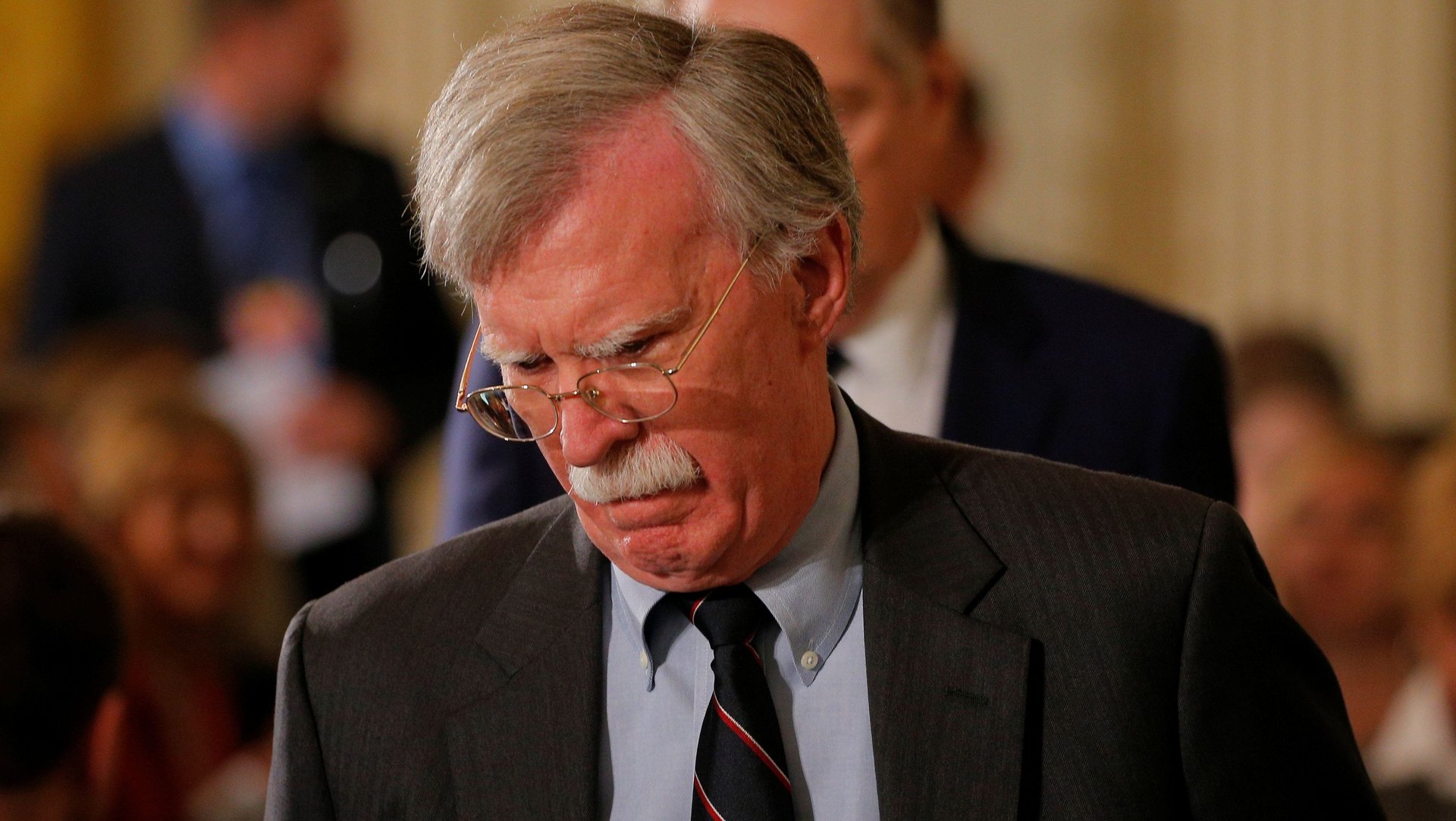John Bolton’s departure opens a door to ease tensions with Iran
US President Donald Trump announced today that national security advisor John Bolton would be leaving the White House, tweeting that he “disagreed strongly” with many of Bolton’s views.


US President Donald Trump announced today that national security advisor John Bolton would be leaving the White House, tweeting that he “disagreed strongly” with many of Bolton’s views.
The famously hawkish former UN ambassador has long called for regime change in Iran by any means necessary. His very presence in Trump’s cabinet is seen as a significant factor behind the escalating tensions with Tehran in recent months. Bolton regularly urged confrontation, at one point advocating for a missile strike in response to Iran allegedly downing an unmanned US drone. Trump initially approved of the strike before backing out at the last minute.
While pulling out of the deal struck by the Obama administration to limit Iran’s nuclear weapons program was a central campaign promise, it’s not clear that Trump ever wanted conflict with Iran beyond that. And he has explicitly undercut Bolton by saying the US didn’t want regime change there. Bolton’s departure now creates an opportunity for both sides to step down from the brink, says Alex Vatanka, a senior fellow at the Middle East Institute, a think tank based in Washington, DC.
“The ball is in Iran’s court. For months and months, the suggestion by senior Iranian officials has been that, ‘If Trump really wants to talk to us, the step he could take is to get rid of John Bolton,'” Vatanka said. “Trump says he disagreed with so much of what Bolton represented. Iran can turn around and say, ‘We hope you also disagreed with him on the Iran question.'”
Trump said last month that he would be open to meeting Iranian president Hassan Rouhani, and suggested he could also allow short-term loans to help Iran muddle through the country’s economic crisis, brought on in large part by US sanctions. Iran has rejected the possibility of talks until sanctions are lifted, but Vatanka says a meeting at the UN General Assembly later this month is still a possibility.
“I hope that’s something they will consider, because otherwise this is a game of kids taunting each other. There’s nothing wrong with talking,” he said. “If they don’t take the opportunity, it goes to show that Iran has moved beyond being stubborn.”
If a meeting does happen, expectations will be very low: “Reconciliation is a tough order,” Vatanka said.